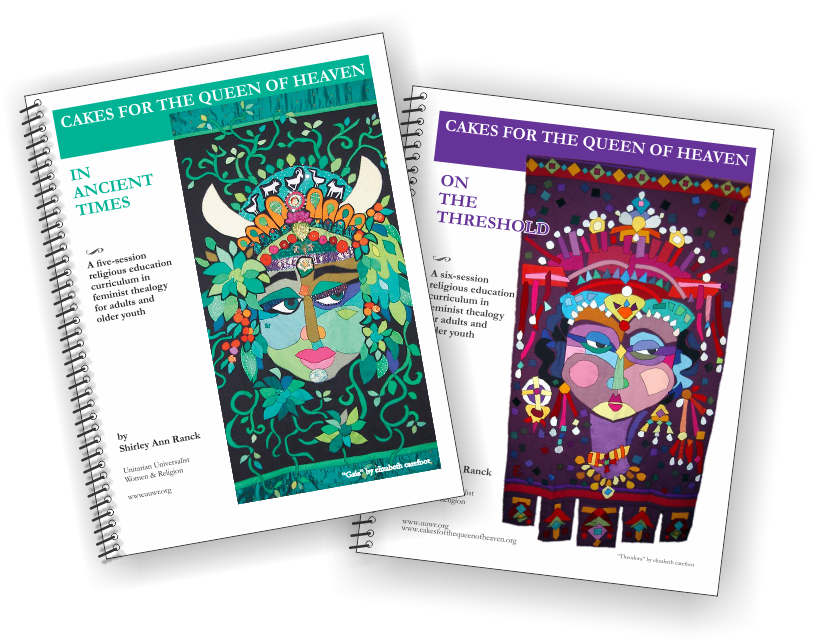Upon rereading our Women and Religion Resolution (within which the International Association of Liberal Religious Women, IALRW, is included), I see our yearning to facilitate peaceful influence. I call the means to that influence, egalitarian complementarity. It is the opposite of controlling, top/down patriarchal ways. It is a way for collaborative partnership when a relationship between two or more persons is based on sharing leadership power. Egalitarian complementarity has flexible “give and take” for idea creation as the situation for action specifically demands.
This decision making exchange naturally determines who assumes leadership through respectful exploration to find who has the best ideas and resources “to do the job.” It’s a liberating process, releasing human potential. Freedom for those involved to act from one’s best self for the good of all is a prerequisite. This attitude comes from each person’s heart and starts with practicing this peaceful process of creative liberation with those closest to us at home. As the ancient Chinese put it, the attitude of peacefulness then can spread to neighbors, cities and nations to finally becoming peace in the world.
When listening to Secretary Clinton and President Obama speak about the Arab Spring revolutions, May 19, 2011, it was validating to hear such ideas as: “cooperation that can bring prosperity and justice” for all of us, “improved living conditions and fundamental economic reform”, “must lead in new and innovative ways” (based on “mutual interests and respect”), “the people of the Middle East and North Africa acting for their basic rights and dignity” in their nations, a “people risen up” against “power in the hands of a few” who have “the tactics of suppression”, the people deserve “a government that does not smother their aspirations”, “prying loose the grip of an iron fist”, “will increase transparency and accountability”, “freedom to assemble… and to choose their own leaders”, no to coercion/ yes to consent. “The government and opposition must engage in dialogue”. “The events of the past six months show the world can change”, the people’s “words can be free” to be expressed. “The broader aspirations of the people include valuing the dignity of the street vendor and his/her basic needs” such as for food. “When women are empowered, a nation becomes more prosperous and peaceful.” Think tanks and “business leaders play a strong role in bringing stability to the region” of the Arab Spring revolts. We have “a new opening for …peace.”
My present series of reports describing the peace work I heard about at the IALRW September conference continues in this issue with Michiko Iwabuchi’s “MDG’s to Defend Life, Dignity and Human Rights in Developing Countries.” WOMUUNWEB’S initial report on MDG’s was in a year 2000 issue when they came out for use by the international community.
Report #3 - From the IALRW Centennial Celebration, September 4 - 7, 2011, Kochi, India
Timeline provided by the women from Rissho Kosei-Kai, the Japanese RKK Buddhists:
“Change: Meaning and Importance of PEACE”
1910 – 1920 The Colonial Period with World War I
1920 – 1945 Totalitarian Regime with World War II
1945 – 1990 The Ideological Era with the Cold War
1990 – 2010 Economical Growth, Over-Population, Mass Consumption, Terrorism, Weather Fluctuation, Poverty/Wealth Gap, Eco – Problems, Natural Havoc, Resource Exhaustion (Water/Fuel/Minerals/Food)
“From the beginning, IALRW women believed that despite the different definitions and ways of explanations of our different faith traditions, there are common threads weaving us together. They strive to embody and nurture a spirit of generosity and trust which encourages care, education, networking and financial support for women, especially those in impoverished and difficult circumstances.”
In her report, Michiko Iwabuchi describes the MDG’s, Millennium Development Goals, as …”not only development objectives – they encompass universally accepted human values and the right to basic education, the right to health and responsibility to future generations. The target date is 2015 by which the MDG’s are to be achieved…There are eight goals with twenty-one targets and a series of measurable indicators for each target.”
I see the denial of these basic human rights causing the kind of accumulated resentment pointed out by Michiko Tsuchihashi in the last WOMUUNWEB issue’s IALRW report #2. I believe our Women and Religion quest is to seek peace- education opportunities (both directly and through modeling) for the liberation of humankind’s innate, individual personal gifts. For instance, we teach, on our own, through engaging in political actions to expose the harmful obstacles patriarchal domination can place in the way of establishing the “universally accepted human values and rights”, as Michiko Iwabuchi states, to exemplify the MDG’s. We teach peace, mostly, in day by day efforts by our egalitarian complementarity in personal relationships. I believe this is the way to make decisions. This kind of exchange is based on bringing out the best ideas and the resources that a person can apply to the situation in question.
Are we in the same evolutionary flow as The Arab Spring? That democratic revolution tells me that establishment of the kind of security and freedom the MDG’s give comes first. Then the jobs that would come out of the established MDG stability would be beneficial to the whole world economy, and, much more, to real world peace. In this light, Michiko speaks about the importance of IALRW’s Ladakh Literacy Project in India (reported on as WOMUUNWEB’s #1 of this series, a couple issues back.)
To build on Michiko’s thinking, “Advanced countries are seriously damaged” by today’s status quo. Michiko says, “Certainly the world economy is in a deadlock… However, the people in developing countries now have their lives threatened. People in advanced countries should be more conscious that our daily lives are supported by developing countries. It is our duty to help developing countries. …I, myself, would like to take action against poverty in developing countries. Please pay attention to MDG’s. Life, dignity and human rights of people in developing countries are threatened because of poverty.”
Here are quotes to give a glimpse of Michiko’s assessment of the MDG progress:
“How much has the world achieved the United Nations’ MDG’s? In fact, the Lehman Brothers shock in September, 2008, (and now, I, Helen, add Japan’s current post-earthquake economy, faltering in recession) affected the world economy seriously, so that advanced countries which had pledged to support developing countries have less interest in MDG’s. The action plans have not been achieved. Then, let’s see the state of developing countries:
1. ”Conflict gives rise to poverty among people who have no direct involvement in the dispute.
2. “Progress in reducing hunger is now being eroded by the worldwide increase in food prices…
3. “Mortality rates are higher for children from rural and poor families, whose mothers lack a basic education.
4. “Open defecation continues to be practiced by almost half the population in South Asia and more than a quarter of those living in sub-Sahara Africa.”
5. “Those living in slum conditions …suffer from contaminated drinking water and inadequate sanitation and housing.
“Some important progress has been made these ten years, however the world is not on the track to fulfill commitments. To achieve the Goals, the following efforts are needed:
1. “Advanced countries should increase contributions to bilateral aid and to multilateral development institutions to achieve their pledges.
2. “Tariffs and import quotas to exports from developing countries to advanced countries should be removed.
3. “Indispensable medicines should be offered in developing countries at low prices in cooperation with the pharmaceutical companies.
4. “Debts of the developing countries should be reduced. Financial support from advanced countries is a big key. We have to do something for 5.5 billion people whom we can not allow to remain unnoticed.”
Secretary Clinton, I’m sure, is well aware of the MDG’s for use to achieve much of what she and President Obama advocated, May 19. The Arab Spring gives me hope work to achieve the MDG’s will be sped-up. People who have come alive in revolution is a first step though it be so filled with extreme sacrifice, agonizing setbacks such as the Libyan Viagra-fed troops using rape as a weapon of war, and great hardship for innocents. This reality makes following the news sleep-disturbing. I know the change will be slow (maybe in a decade?), but with an unknown future outcome, I end with a quote from Rev. Rob Keithan:
“What is certain is that, thanks to the combination of audacity, action and circumstances, transformation is happening right before our eyes. Although it may not touch our lives directly, I pray that we all feel some sense of connection to what is happening in that region. Even if our only role is to witness, I believe that it is a serious – and even sacred – act to see people fight for self-expression and self-determination. Let us appreciate the opportunity we have been given.”
IALRW and the Women and Religion movement are in alignment with this historical flow. We belong to the evolutionary urge for peaceful, liberated human life on our planet.



